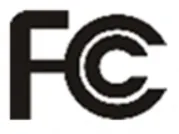
What Is FCC Part 15 Testing?
fcc: The Federal Communications Commission of the United States. It primarily sets requirements for wireless electronic products entering the US market, especially for ITE information products, scientific and medical equipment, household appliances, and communication products operating at frequencies above 9KHz. The aim is to manage and restrict the use of the radio spectrum.
fcc part 15 specifies the requirements for all radio frequency devices. This technical regULation is a prerequisite for radio frequency devices entering the US market. It includes technical scope, administrative requirements, and other conditions that must be followed when placing equipment on the market.

Products Applicable to FCC Part 15 Standards:
1. Computers and Peripherals: Keyboards, monitors, power adapters, MICe, fax machines, etc.
2. Household Appliances and Power Tools: Refrigerators, electric kettles, electronic sterilizers, microwaves, vacuum cleaners, electric shavers, hair dryers, ovens, massage devices, washing machines, etc.
3. Lighting: LED lights, LED screens, stage lights, switches, electronic devices, etc.
Subsections of FCC Part 15:
1. FCC Part 15 Subpart A: This is the general provision of FCC Part 15, including general rules and definitions aimed at ensuring that the electromagnetic radiation of equipment does not interfere with other electronic devices or radio communication systems.
2. FCC Part 15 Subpart B: This pertains to computer equipment, defining the electromagnetic radiation limits, testing methods, and labeling requirements for computer devices. It ensures that devices meet radiation limits to avoid affecting the functionality of other equipment during normal operation.
3. FCC Part 15 Subpart C: This covers television receiving equipment, specifying the radio interference limits for such devices to ensure they can receive broadcast signals without interference from other devices.
4. FCC Part 15 Subpart D: This concerns radio frequency measuring instruments, stipulating the technical requirements and testing procedures to ensure accurate measurement and detection of electromagnetic radiation.
5. FCC Part 15 Subpart E: This relates to low-power devices, managing equipment that uses low-power radio frequency spectra, such as wireless headphones and keyboards. It defines the spectrum usage conditions and technical requirements to avoid interference with other devices or bands.
Overview of FCC Part 15 Standards:
The FCC Part 15 standards are a set of regulations established by the Federal Communications Commission (FCC) to specify the limits of radio frequency radiation and electromagnetic interference for electronic devices. These standards apply to various electronic devices sold and used within the United States, including radio frequency emitting devices, computer equipment, household appliances, and lighting equipment.
Key Aspects of FCC Part 15 Standards:
1. Radio Emission Devices: Specifies the radio frequency radiation limits to ensure that devices do not interfere with other radio communications. This includes devices such as Wi-Fi routers, Bluetooth devices, mobile phones, and radio transmitters.
2. Electromagnetic Interference of Electronic Devices: Specifies the limits of electromagnetic interference generated by electronic devices to ensure they do not affect the normal operation of other electronic devices. This includes computers, televisions, radios, household appliances, etc.
Devices that comply with FCC Part 15 standards receive "fcc certification," which is one of the necessary conditions for selling electronic devices in the US market. This certification indicates that the device meets FCC requirements for radio frequency radiation and electromagnetic interference, qualifying it for legal market placement.
Importance of FCC Part 15 Standards:
The overall goal of FCC Part 15 standards is to ensure the harmonious coexistence of different types of electronic devices, REDucing interference with radio communication systems and other equipment. These regulations help improve the quality and reliability of electronic devices and maintain effective management and utilization of the radio spectrum, thus promoting the development of radio communications. Adhering to FCC Part 15 standards when purchasing and using electronic devices ensures that the devices meet relevant electromagnetic compatibility requirements, guaranteeing their safety and performance.
fcc part 15 testing Costs:
The cost depends on the product type and testing type. The minimum FCC fee at China's JJR Laboratory is approximately $400.
Email:hello@jjrlab.com
Write your message here and send it to us
 How Do You Get a CE Mark
How Do You Get a CE Mark
 IEC 60529 IP Rating Ingress Protection Standard
IEC 60529 IP Rating Ingress Protection Standard
 IEC 60601-1 Medical Electrical Equipment Basic Saf
IEC 60601-1 Medical Electrical Equipment Basic Saf
 European Authorized Representative Medical Devices
European Authorized Representative Medical Devices
 EU Waste Electrical and Electronic Equipment Direc
EU Waste Electrical and Electronic Equipment Direc
 How to Get CE Approval
How to Get CE Approval
 Accelerated Ageing Test
Accelerated Ageing Test
 IP Ingress Protection Testing
IP Ingress Protection Testing
Leave us a message
24-hour online customer service at any time to respond, so that you worry!




